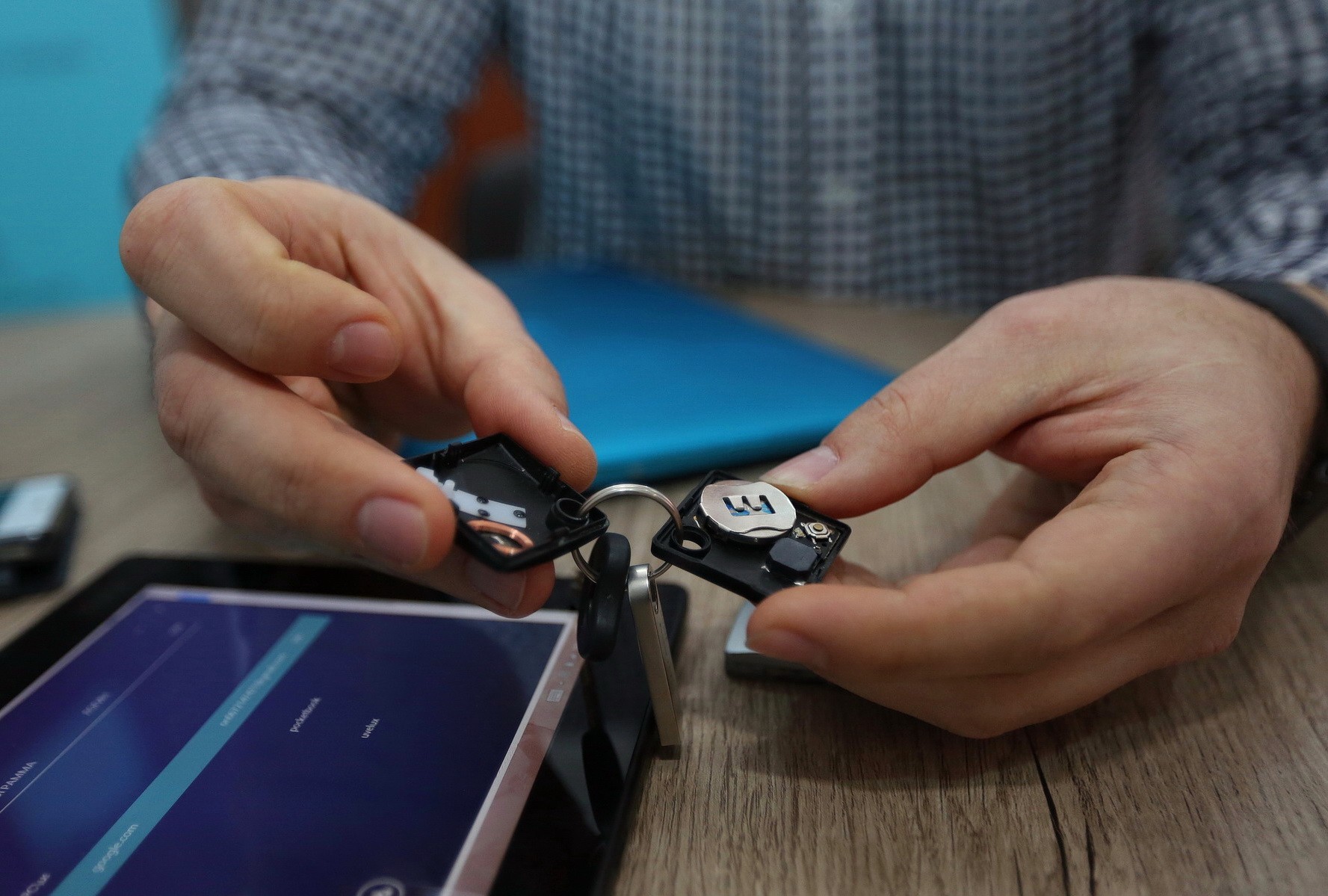It took Ukrainian Oleg Naumenko a year to recover money stolen when his online bank account was hacked.
The first sign that something was wrong was a message on his smartphone notifying him that 15 pounds had been transferred from his bank account. However, he just reckoned his wife had used his card to buy something online, and thought no more about it.
But a short while later another message came – 600 pounds had been transferred from his account. It was then he realized something was wrong.
Naumenko had fallen prey to hackers for the same reason most of us do – using weak passwords, and using the same password across multiple apps and websites. While it might be convenient to use the same password for Facebook, Google, Twitter and even online banking accounts, once hackers have the password for one, they have access to all.
However, Naumenko was in a unique position to prevent a future hacker attack: He’s a tech inventor and a founder of the fifth biggest e-reader producer in the world, PocketBook, which is especially popular in the former Soviet Union.
“It’s impossible to remember loads of long passwords, and certainly unsafe to have them all written in a notepad,” Naumenko told the Kyiv Post.
“I was looking for a solution, for a universal key.”
Being less busy after selling his PocketBook shares in 2012, Naumenko had the time to develop a device that would remember super-secure passwords for him, making sure only he had access to all of his devices and online accounts.
So in 2014, his latest startup – Hideez – was born. The startup has since developed a universal digital key that opens all digital doors for its owner, keeping them, however, closed to strangers.
The password manager device, called the Hideez Key, consists of a key fob and a mobile app, which pair via Bluetooth 4.0 or higher. The device stores passwords for websites and apps visited from a paired device, and at the next visit it enters the relevant password for the user at a click of the fob’s button.
To ensure the security of the Hideez app, the login can be done via a retina scan identification system, which Hideez licenses. “Or you might still have to memorize at least one password,” Naumenko said.
Apart from storing passwords, the fob locks devices’ screens if it moves a certain distance away from them, and unlocks them when it comes back in range. It works with desktop computers, tablet computers, smartphones – any device that can use Bluetooth. It also can open doors closed with RFID readers – the kind usually installed in garages, building entrances, offices, and various types of lockers.
If the device is itself lost or stolen, it can be blocked remotely.

Hideez CEO Oleg Naumenko shows the Kyiv Post how a Hideez Key device looks from the inside. (Kostyantyn Chernichkin)
According to Naumenko, he found it much easier to market his new startup because of his experience with setting up PocketBook. Some 2,500 devices are already available for purchase in Ukraine and Germany. In the future, Hideez plans to come out with a device in the form of a bracelet, and with extended functionality.
But this time Naumenko is not going to relocate the company, as he did with PocketBook, which he headquartered in Lugano, Switzerland.
“Today Ukraine has more to offer than it used to,” Naumenko said.
“When working on e-readers, I could not benefit from manufacturing them in Ukraine. It was more expensive and complex. Now I was able to find at least three factories that were ready to produce parts cheaper or at the same price as in China.”
“Ukraine has become a perfect place for creating and inventing.”
Kyiv Post staff writer Denys Krasnikov can be reached at [email protected].
